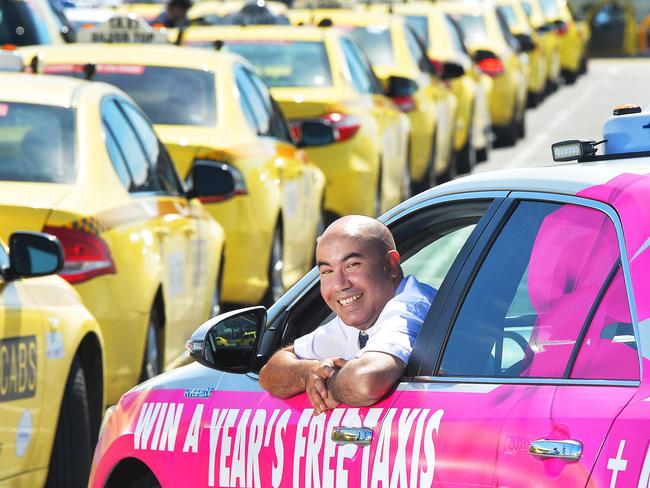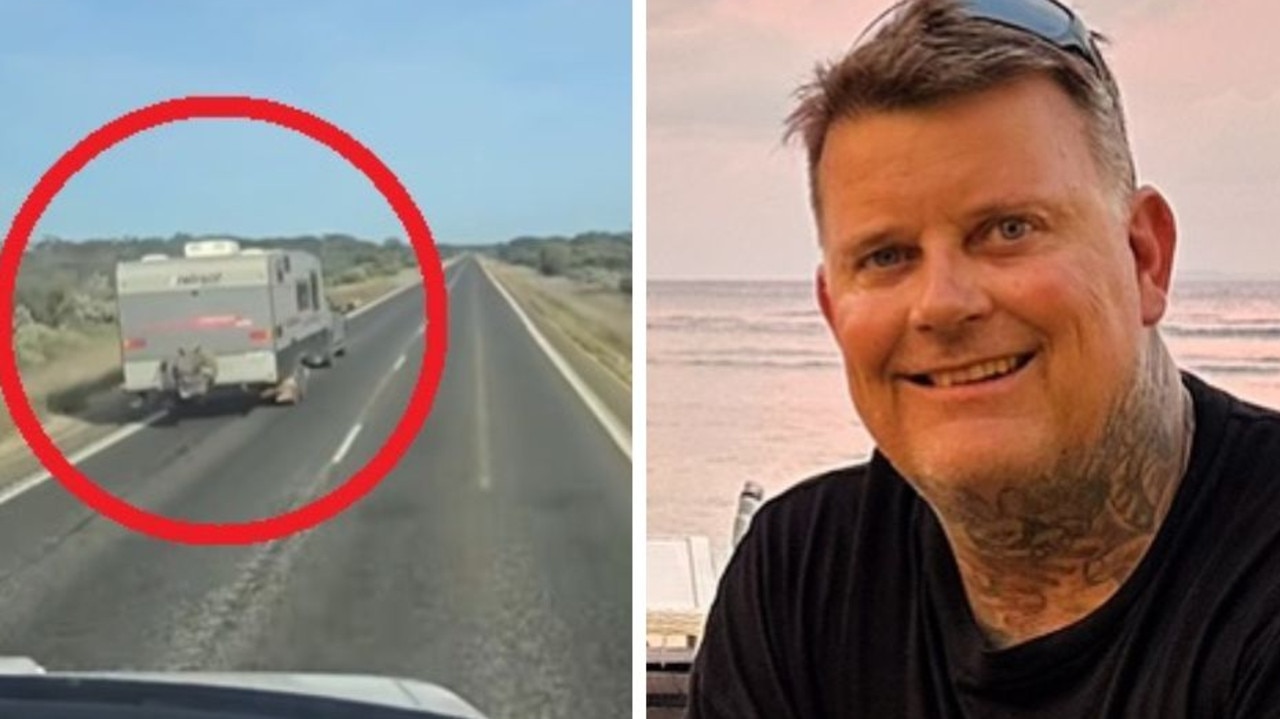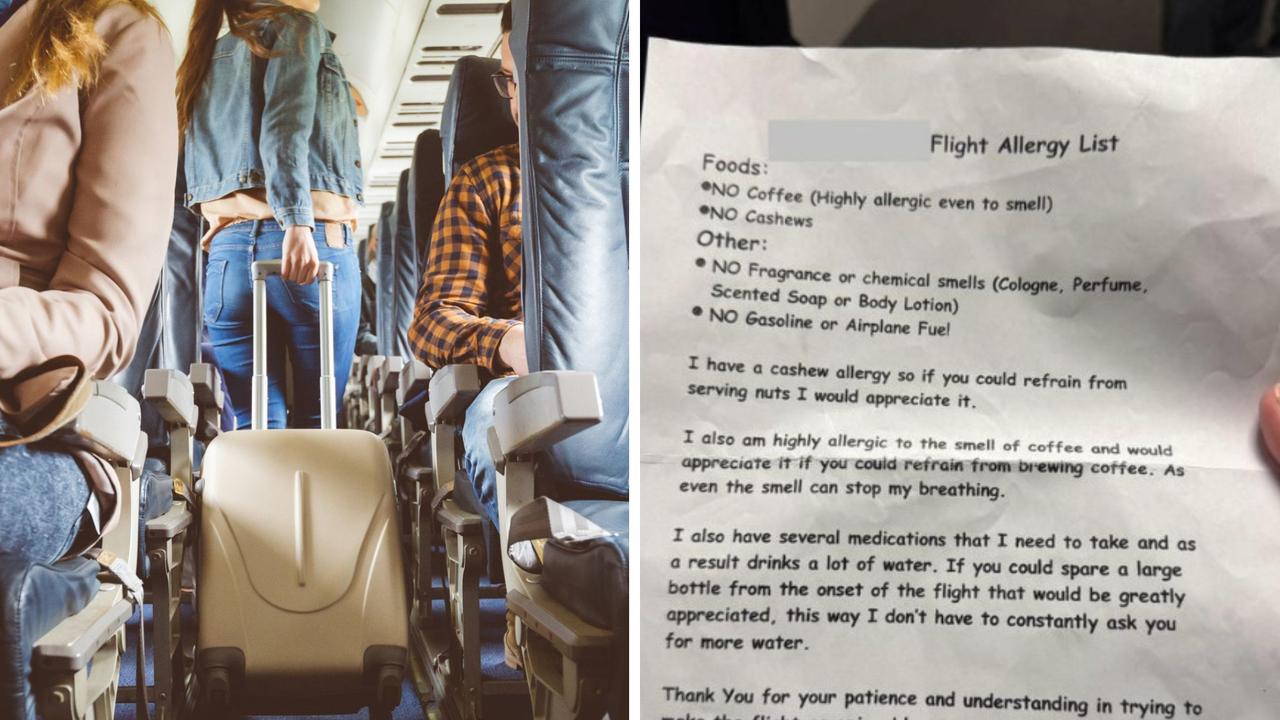#YourTaxis Twitter campaign is the social media fail of the year
“IT SMELLED like a wookiee’s armpit.” Stinky, abusive and unreliable taxi drivers sledged on Twitter as social media campaign descends into farce.
STINKY cabbies with no idea where they’re going, racist and homophobic rants, reckless driving and sleazy comments: it’s just another Melbourne cab ride.
The Victorian Taxi Association’s attempt to master social media has descended into farce, as customers bombard its new Twitter account with cabbie horror stories.
And they asked for it. The campaign yesterday invited passengers to share their personal taxi stories with #YourTaxis, as part of a social media blitz aimed at taking on popular ride-sharing service Uber.

Passengers responded by unleashing their fury over the bad service, poor personal hygiene and unreliability the state’s taxi drivers have come to be known for.
The first cab off the rank was Leigh Stillard, who shared his experience of a particularly ranty and pungent driver.
@yourtaxis It smelled like a wookiee's armpit. I was preached at about how Somali immigrants are destroying Australia for 25 min. #YourTaxis
— Leigh Stillard (@LeighStillard) November 9, 2015Others complained of being left standed in the rain because their ride was “too short”, being stuck in the car with erratic drivers who talked on their phones the entire trip and being unable to find a taxi or get through on the booking line.
Many of those who tweeted took the opportunity to spell out exactly why they had switched to Uber, including that drivers on the ride-sharing app “don’t need directions”.
Basic geography continues to be a major problem for Melbourne cabbies; even the city’s major landmarks were hard to find.
@yourtaxis Driver said he didn't know where Flinders Street Station was and had me direct him there. Flinders. Street. Station.
— HerpDerp HerpDerp (@HerpDerpx2) November 9, 2015One passenger complained that a driver had “asked me to direct him to Punt Rd. We were on Chapel St”. Another cabbie had to be directed to Melbourne’s Tullamarine Airport.
Women complained of inappropriate sexual comments, groping and assault by sleazy taxi drivers— and were not impressed by the standard “sorry to hear about your experience” response.
“That time after I had paid my fare and tried to exit the cab, the driver grabbed me by the arm and tried to make me kiss him,” one woman tweeted.
@yourtaxis been groped + the "am i driving to your home? where is your husband? are you married?" schtick. #yourtaxis
— kylie gusset (@gusseting) November 9, 2015“The @yourtaxis account is such a social media disaster it’s almost like they want @Uber to kick their butt,” one person tweeted.
A man recounted arriving back in Australia from an overseas holiday, only to have a taxi driver “shout abuse at my wife”.
Another passenger reported that their cab ride from the airport “involved being lectured about how a man marrying a man is a joke and the same as marrying a dog”.
While another tweeted: “@yourtaxis being refused out of desperation tried Uber and couldn’t be happier. Haven’t caught a taxi in a year and don’t plan to #YourTaxis.”
@yourtaxis driver fell asleep on freeway and almost wiped out car in next lane because he'd pulled an all-nighter #yourtaxis #taxiyourway
— Cameron Rogers (@cameron_rogers) November 9, 2015We hope whoever is running the Your Taxis account has a background in customer complaints, because its Twitter feed is almost exclusively made up of apologies — aside from the initial flurry of posts that appear to have been staged.
“Could this be a more colossal f***-up?” one person Tweeted. “I guess it ties into your business model, though. #YourTaxis #socialmediastupidity”.
Nicole Reaney, founder of public relations firm InsideOut PR, said the social media fail appeared to be either a case of being “extremely naive” or having an “appetite for risk”.
“Everyone you know has a terrible story or experience about a taxi driver,” she said.
“I would really doubt that an agency would promote this on purpose without anticipating the fallout.”
Ms Reaney said sometimes agencies advised clients against ideas like this but were overruled when the company was “passionate about achieving particular targets”.
She said while brands were “hungry for a piece of the social media conversation”, hashtag campaigns worked best when they were connected to a narrative that resonated with the public, such as stories of human adversity.
But in this case, she said, “the hashtag was just asking for trouble”.
“They’ve really opened up Pandora’s box with this campaign,” Ms Reaney said.
“They’ve lost control of the messaging. There’s nothing they can do except dial down the promotion of it and ride the wave.”



